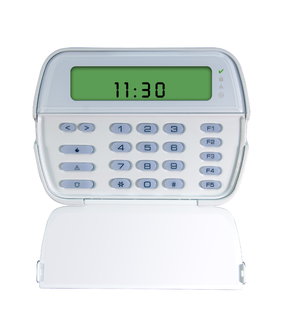You’re sitting down to review your budget and looking to trim some of that financial fat. We all have to do it from time to time.
You look at your cable bill, but just can’t part with HGTV, SPIKE, HBO, AMC or the 35 Do It Yourself channels.
You can’t even fathom reducing your internet service any further or you might as well go back to dial up.
You’ll get your sweaters and slippers out and turn down the heat a few degrees.
Take shorter showers. Power down and unplug anything not in use.
That should save a few bucks. And what about that land line phone service? You carry a cell phone, so does your room mate, spouse or partner, so why do you need a phone line at home? “Well that obviously has to go” you think, as you proudly save yourself about $30 a month.
You brush your hands together with a sense of accomplishment and put down your fiscal pruning shears.
A week later you notice that your alarm in your security system has a yellow trouble light on. “That’s strange” you say, as you pick up your cell phone to call the alarm company.
Let’s stop here. This is usually where I end up entering the story and I can tell you right now, do NOT panic. That slick financial move you made to cancel your phone service had implications to more than just your phone bill, but I have a solution.
Your alarm monitoring service in a security system requires some form of communication from the alarm system to the monitoring station. For years we relied on the copper wire systems that were so common place in every home.
As cell phones have been slowly becoming the main source of communication for a new generation, the need for a traditional home phone is becoming a thing of the past. This change led the security industry to develop new communications devices.
GSM CELLULAR BACK UP
The GSM device is the mechanical equivalent of a cell phone directly connected to your alarm system. Its only job is to communicate to the monitoring station. The GSM is powered off of the alarm panel and has its own back up battery, just like the alarm panel, to ensure operation during a power outage.
The monthly cost of the GSM is less than the phone line you cancelled so do not worry, you will still be saving money. Not to mention, you’ll avoid those annoying telemarketers during your dinner.
The drawback to this device can be that, if you are in a remote location and do not receive cellular service then this device will not be effective. But with cellular service growing and getting stronger everywhere you go, there is a low probability that this will be a problem.
T-LINK INTERNET COMMUNICATOR
The T-LINK device utilizes your home internet service to send a signal to the alarm station. It connects directly to the alarm panel then out to an open port on your router. Using very low bandwidth, it sends the signals for your alarm system to the monitoring station.
Again, it is powered by the alarm panel. As well, like the GSM, you will have a monthly cost for the service, but it will pale compared to your regular phone bill.
The drawback to this device is that if your internet service fails, or you have a power outage and your router is not backed up with an uninterruptible power supply (UPS), then you will lose communication to the monitoring station.
What it all boils down to is this:
Yes, you can have your alarm system and cancel your phone line.
If you are thinking about cancelling your phone line, or you’ve already cancelled it, contact your security system provider ASAP to find a solution that works for you. If you have questions you can always reach out to us here at SecurU and we will be happy to assist you with your security needs.


 The Straight Goods on Smoke Detectors
The Straight Goods on Smoke Detectors